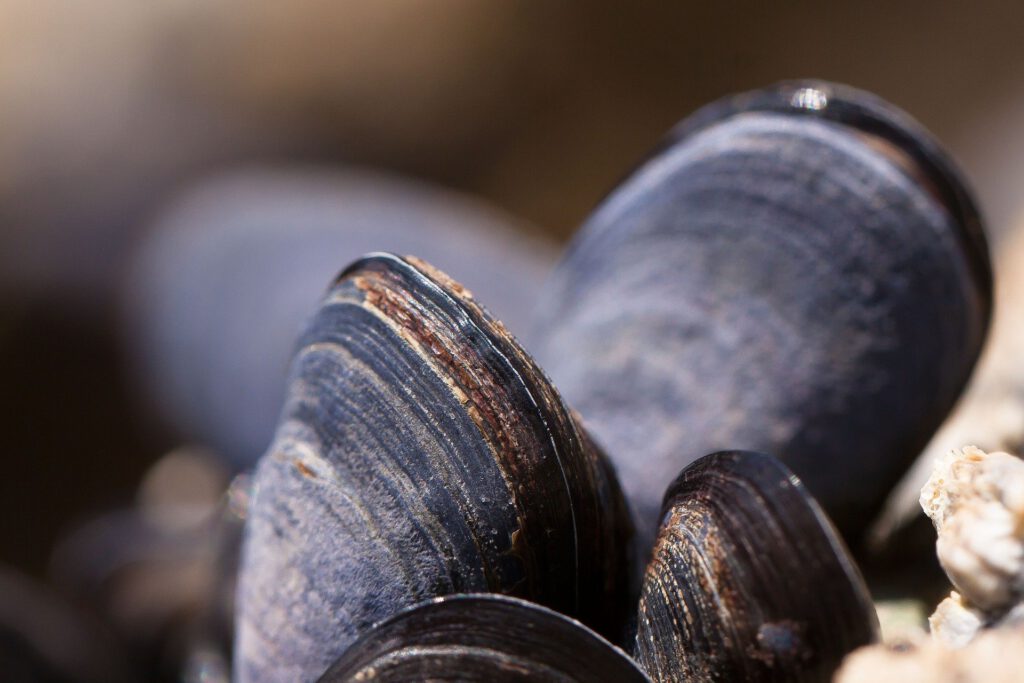We had many excellent discussions at our internal Åbo Akademi University – Environmental and Marine Biology Researcher Days 2022 at Husö this spring
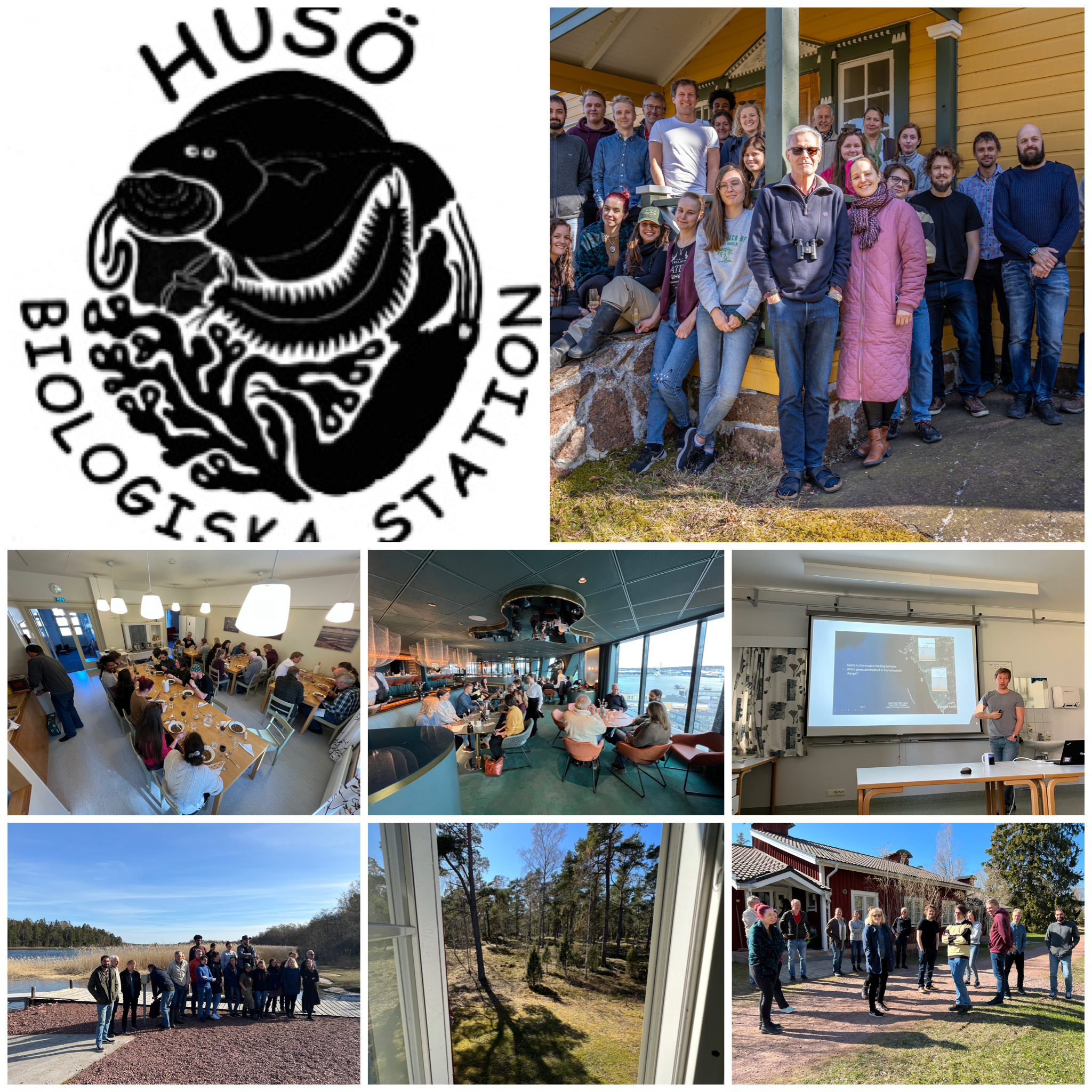
Experimental Ecology Across Scales
We had many excellent discussions at our internal Åbo Akademi University – Environmental and Marine Biology Researcher Days 2022 at Husö this spring

We had great discussions on: Improving inference of multiple-stressors impacts on coastal benthic ecosystems through the lenses of mesocosm facilities during three days April 26-28, 2022
In a great team
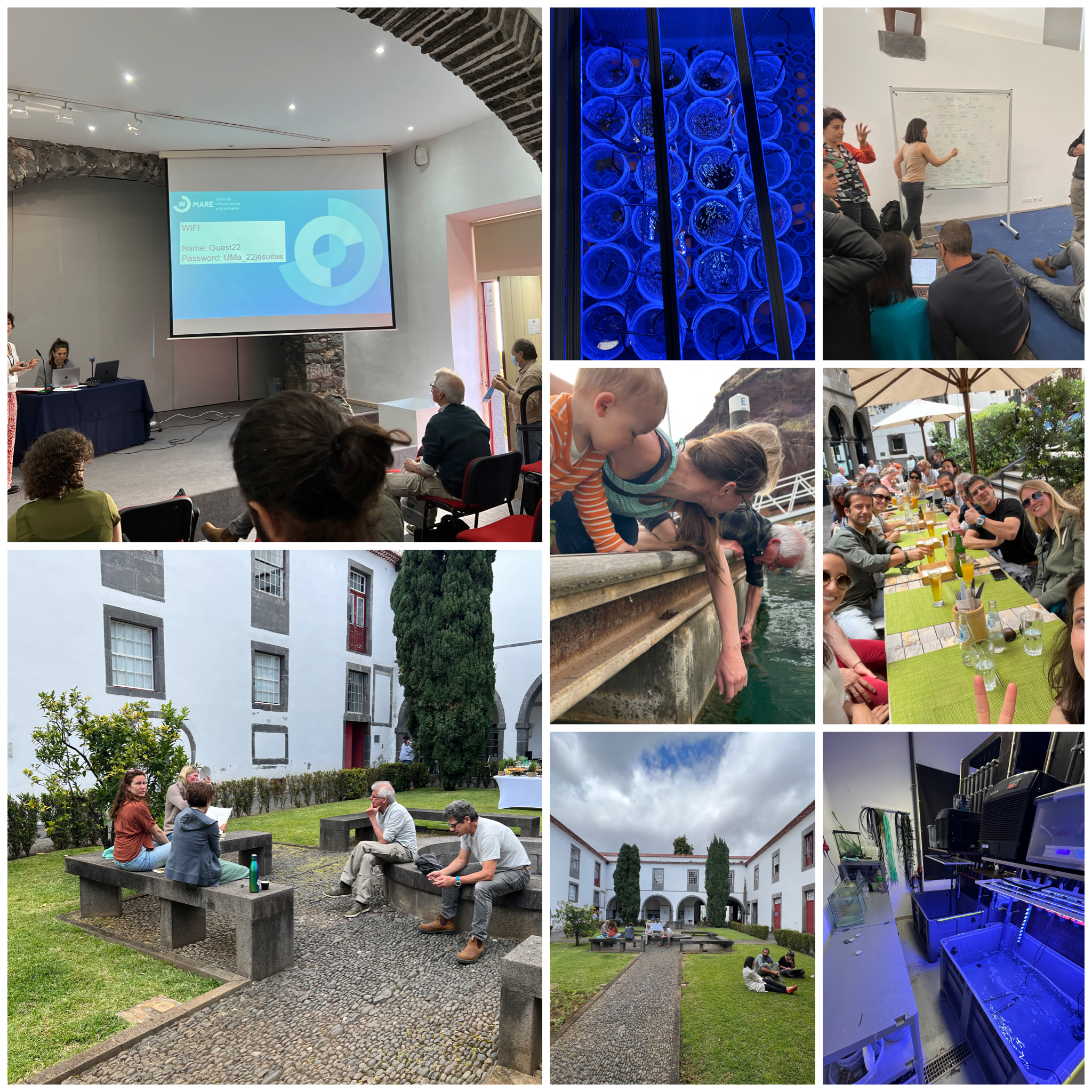
Come join us in our team on Experimental Ecology for a 2-year postdoc at Abo Akademi University in Turku Finland, starting 1.1.2022, or as soon as possible thereafter.
The research is part of the BiodivERsA project BaltVib: Pathogenic Vibrio bacteria in the current and future Baltic Sea waters: mitigating the problem funded by the Academy of Finland and the European Union. The work will be carried out at the subject Environmental and Marine Biology at Abo Akademi University in close collaboration with project partners in Germany, Poland, Lithuania, Estonia, Sweden, and Denmark. Experiments will be conducted at our field station the Archipelago Centre Korpoström, two hours southwest of Turku in the heart of the Archipelago Sea (UNESCO Biosphere Reserve). We will simulate simplified benthic hard- and soft-bottom community assemblages with or without blue mussels (Mytilus spp.), macrophytes (Fucus vesiculosus) and eelgrass (Zostera marina), all abundant and important ecosystem engineers in most parts of the Baltic. Bacterioplankton will be analyzed, and pathogenic and non-pathogenic subgroups will be identified in collaboration with the BaltVib partner institutions.
The application should be submitted by Friday 5 November 2021 at 12:00 (Finnish time) to: Project Researcher within project BaltVib
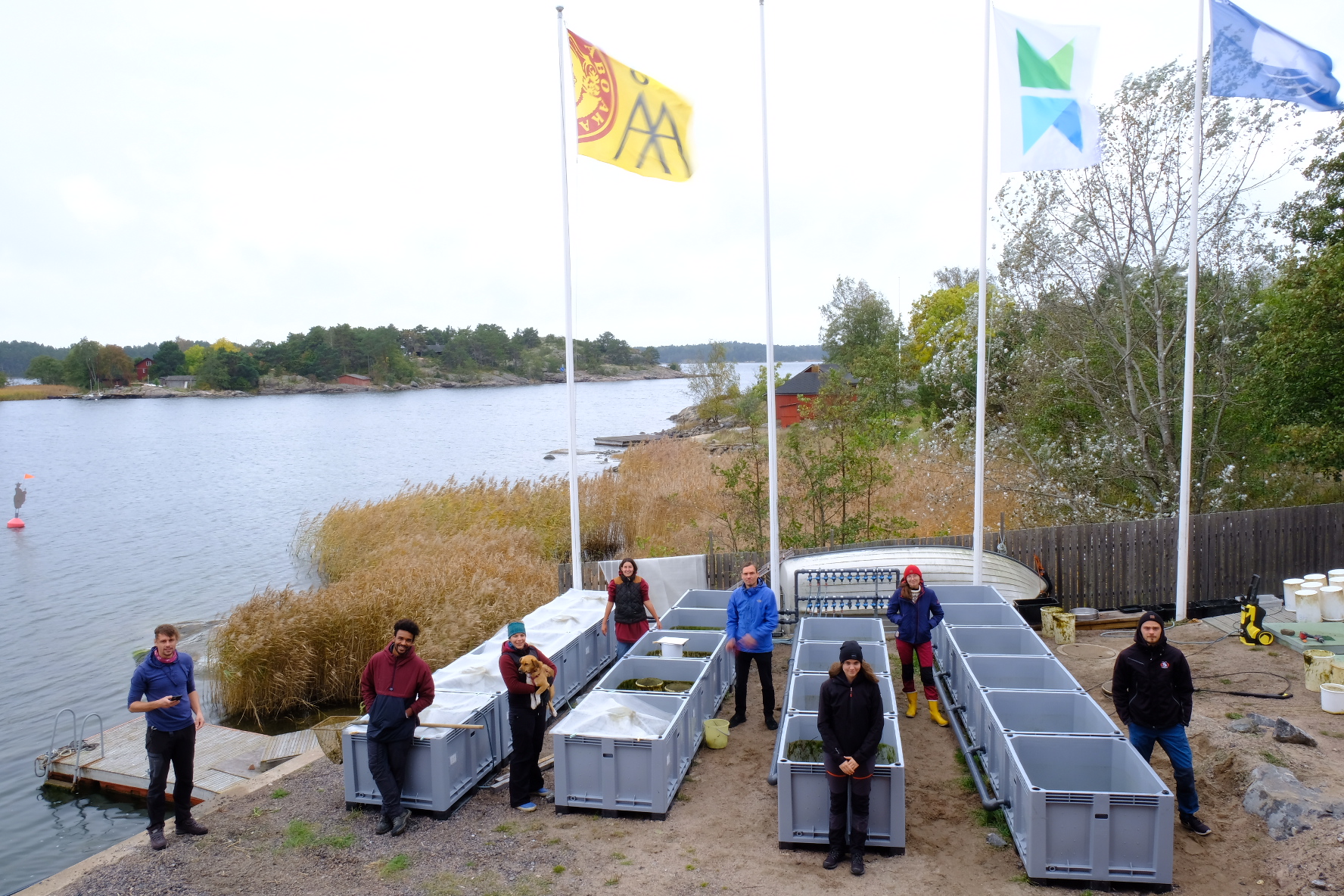
Information on the subject Environmental and Marine Biology can be found here: https://www.abo.fi/en/miljo-och-marinbiologi-forskning-och-personal/
Information regarding our research group can be found here: http://pansch-research.com
The 2021 GAME Team Finland just left Husö Biological Station with a thorough set of data on the effects of artificial light at night (ALAN) on the feeding activity of mud crabs and snails, which will now be evaluated at GEOMAR in Kiel. Thanks to the Husö Staff and to Abo Akademi University and thanks to the excellent GAME Programme at GEOMAR.
And thanks to Helen and Sarah-Vanessa for doing a great job at Husö.
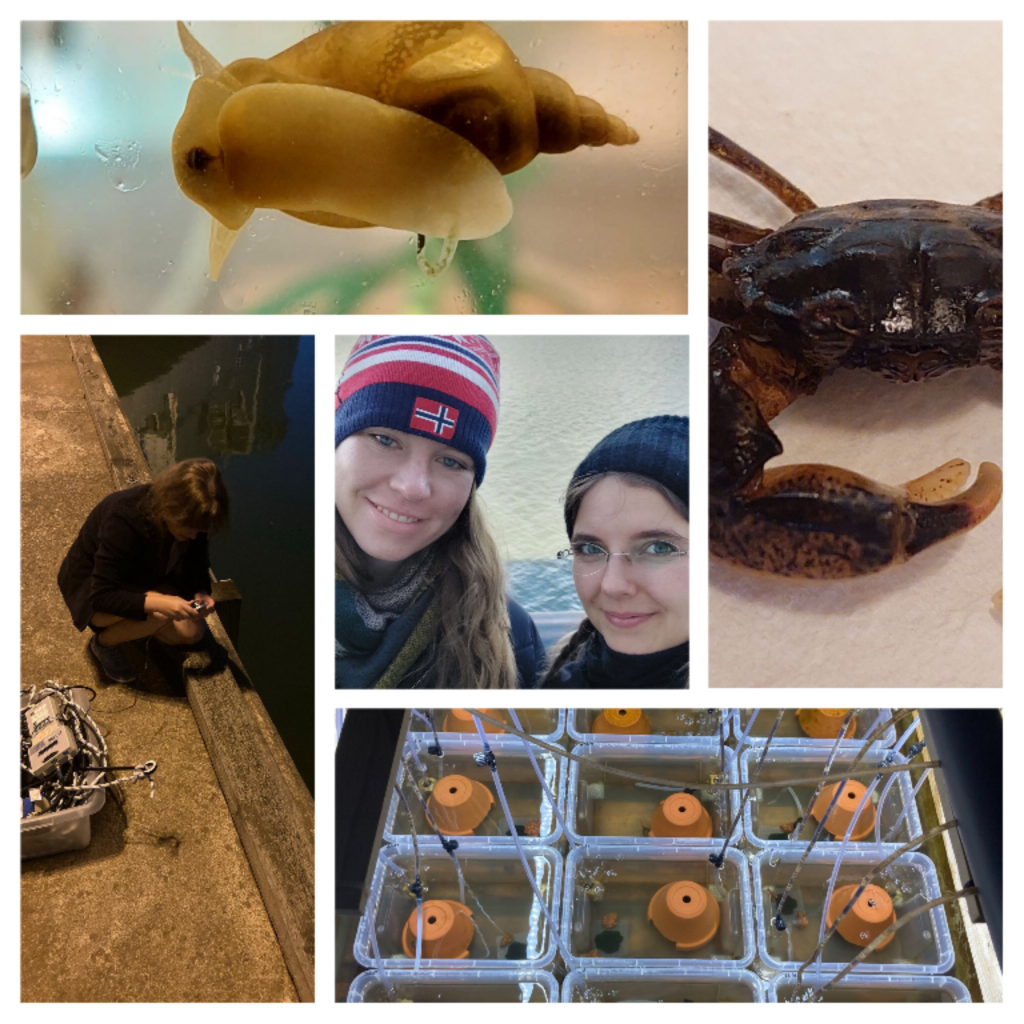
Just finalized our 2021 seagrass-bivalve mesocosm experiment at Korpoström that we started in June this year. Thanks to the great team of people: Lukas, Karine, Miguel, Sarah, Alina, Lucinda & Niklas from Abo Akademi University, HIFMB Oldenburg and from GEOMAR. And special thanks to Sarah Rühmkorff (GEOMAR) for running the experiment all these months.

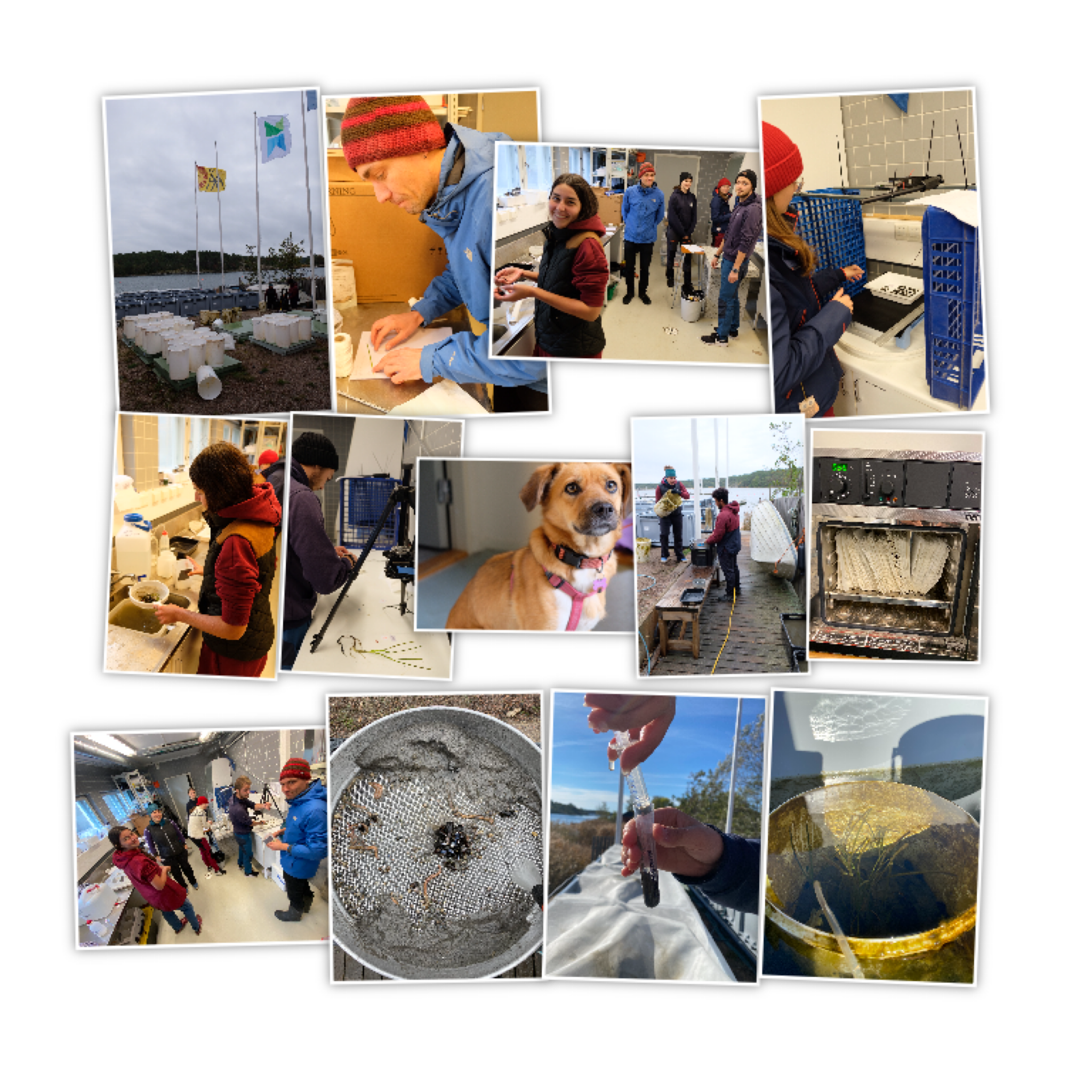
Svenska Kulturfonden: Marine heatwaves in the Archipelago Sea – from identification and measuring their impacts, to implementation of mitigation strategies
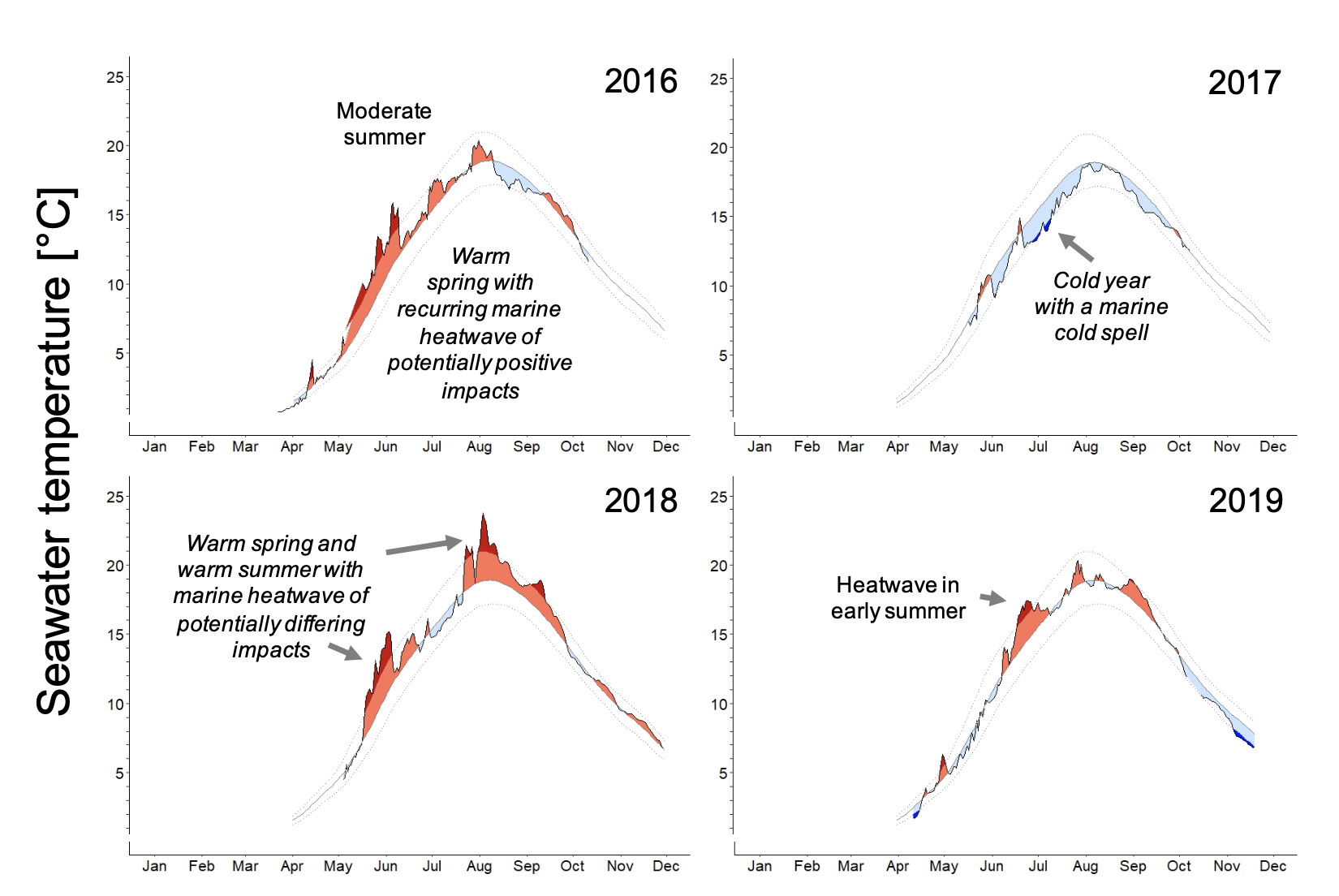
Using a 14-year (2006–2019) temperature dataset from the Archipelago Sea (Seili Archipelago Research Institute, University of Turku), we calculated a climatology, which represents a normal or an ‘average’ year (solid lines). Smaller deviations from this average are common (orange colour), but if these exceed given thresholds (90th and 10th percentiles, upper and lower dashed lines, respectively), these can be considered as marine heatwaves (red colour) and coldspells (dark blue colour), i.e., representing periods of potentially strong stress to organisms and ecosystems. Plot produced by Lucinda Kraufvelin after Hobday et al. (2018) 2 and data were provided by the Jari Hänninen (University of Turku)
This project applies different approaches to serve the particular question: Can we – by local measures – mitigate the negative impacts from globally driven extreme events such as marine heatwaves in the Archipelago Sea? As one result of global warming, marine heatwaves are increasingly found worldwide, and their intensification if projected for the near future. Heat stress often drives species beyond their thermal limits with consequences for the individual performance, and a risk of loss of sensitive species and ecosystem collapse, while additional – often local – stress may exacerbate the negative impacts from marine heatwaves. By means of data modelling and experimental ecological research, we identified the occurrence of marine heatwaves in the Archipelago Sea and will now test their impacts on Archipelago Sea marine ecosystems in simulated mesocosm experiments. We will further classify and test the main local drivers that intensify the negative impact from heat stress in the Archipelago Sea. This will help developing mitigation strategies during the occurrence of these extremes, which might be temporal reductions in boat noise and wave emissions, reductions in micro- or macro-plastics, local eutrophication or temporal restrictions in identified key habitats. In combination with a monitoring and information system, indicating the occurrence of heatwaves to researchers and to society in public exhibitions and the web, this project will identify the potential of mitigating the negative impact from global extreme events by realistic and effective local measures.
On Wednesday afternoon, Jahangir Vajedsamiei graduated with highest distinction possible, i.e., Summa Cum Laude
on the “The neglected role of environmental fluctuations as modulator of stress”
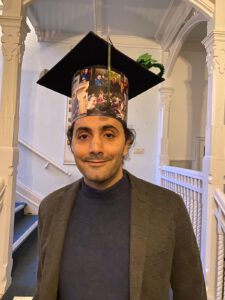
photo taken by Maral Khosravi
This makes me more than proud and its so nice to see how well Jahan has taken up new and challenging concepts in ecology. A great contribution to the field on how we may predict the impacts from environmental thermal variability in a climate change context.
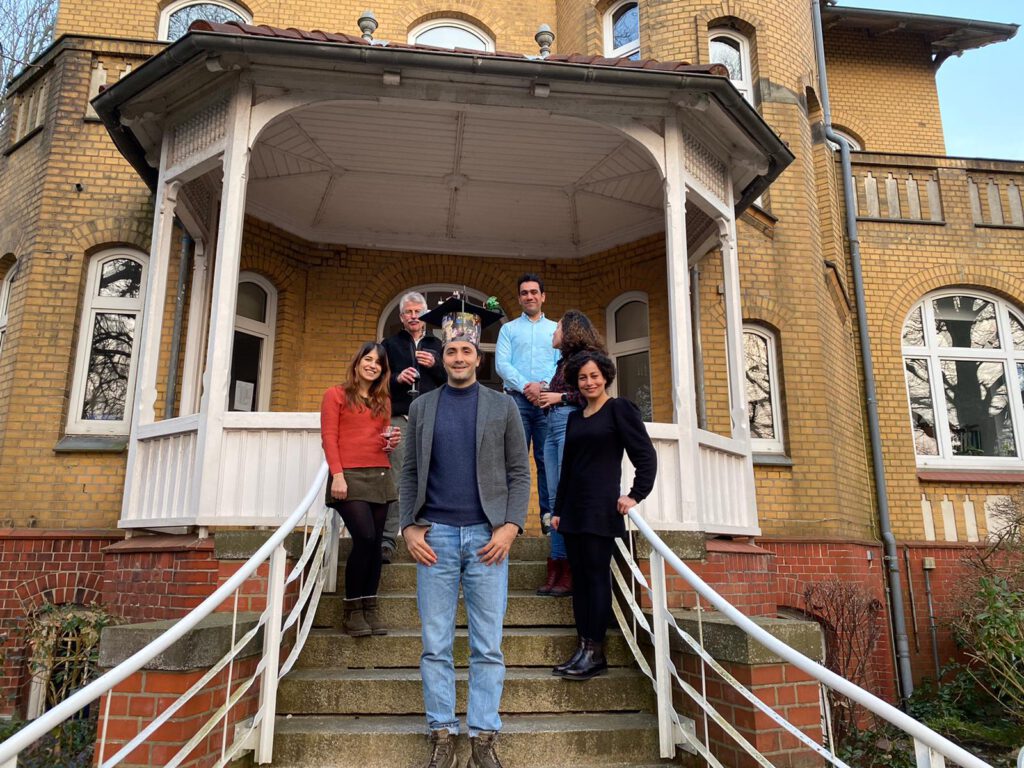
photo taken by Maral Khosravi

I was able to only join the celebration online while some of the participants of the oral defense could convene afterwards if presenting a fresh and negative covid-19 test result (the new normal?)
His publications are:
Jahangir Vajedsamiei, Martin Wahl, Andrea Schmidt, Maryam Yazdanpanahan, Christian Pansch (2021) The higher the needs, the lower the tolerance: Extreme events may select ectotherm recruits with lower metabolic demand and heat sensitivity. Frontiers in Marine Science 8:660427 (https://doi.org/10.3389/fmars.2021.660427)
Jahangir Vajedsamiei, Frank Melzner, Michael Raatz, Rainer Kiko, Maral Khosravi, Christian Pansch (2021) Simultaneous recording of filtration and respiration in marine organisms in response to short-term environmental variability. Limnology and Oceanography – Methods 19:196-209(http://dx.doi.org/10.1002/lom3.10414)
Jahangir Vajedsamiei, Frank Melzner, Michael Raatz, Sonia Moron, Christian Pansch (under review in Functional Ecology) Burden or relief? Impact of cyclic thermal variability on ectotherms capable of metabolic suppression
Great pleasure to be associate editor in Marine Biology

This work very nicely combines a large-scale mesocosm approach (recruitment and growth rates) with a small-scale but high-throughput laboratory assay recording filtration and respiration rates in mussels.
